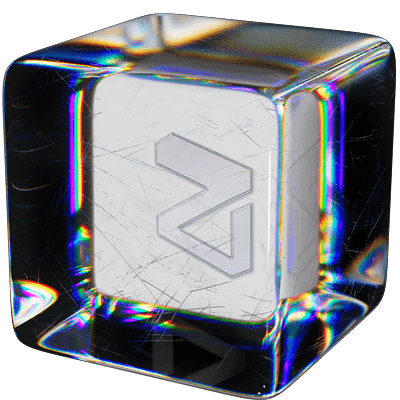
Zilliqa
You can safely stake your Zilliqa
by following the external link to the resource
Zilliqa
EVERSTAKE validator address
Delegating step-by-step
Why stake ZIL with Everstake?
- Everstake is a well-known and reputable staking service provider with a strong track record in managing and securing staked assets. We ensure high uptime, which means your staked ZIL tokens will continuously generate rewards without interruption.
- We also offer extensive support to our community through various channels, including customer service and informative resources about staking. This support can be invaluable for resolving any issues or questions you may have.
How can I stake ZIL with Everstake?
- Step 1. Select a wallet that supports ZIL staking functionality.
- Step 2. Choose Everstake as your validator.
- Step 3. Delegate your ZIL tokens.
- Step 4. Get rewards.
Note: Validators in blockchain networks are tasked with validating transactions and adding them to the blockchain, thereby maintaining the network's integrity and security. However, they do not have the authority to access or control users' funds.
Where can I stake ZIL?
Staking Details
- Epoch duration: ~24 hours.
- First reward info: ~24-48 hours after you delegate your ZIL tokens.
- Reward frequency: Every epoch (~24 hours)
- Min amount to stake: 10 ZIL.
- Everstake fee: 5%.
- Unstaking period: 14 days.
Blockchain Overview
Zilliqa is a smart contract blockchain platform that improves chain scaling through network sharding. This is one of the most distinctive and important features of Zilliqa. Zilliqa has a sharded architecture that addresses the scalability limitations seen on some other blockchains.
Sharding divides a network into mini-blockchains called "shards." All data coming into Zilliqa's blockchain can be processed in smaller sections and shared asynchronously among the shards. A sharded network is ideal for processing complex computational tasks, such as financial modeling, training neural networks, data mining, analytics, and machine learning applications. Zilliqa's network capacity is several hundred thousand TPS. Its architecture relies on task parallelization to distribute work and computation within a peer-to-peer network, allowing delegators to safely stake coins and earn rewards.
Key features of the Zilliqa Network
- Sharding for Scalability: Divides the network into shards to process transactions simultaneously, greatly increasing throughput.
- High Throughput: The Zilliqa network is capable of processing thousands of transactions per second, ideal for large-scale applications.
- Security-focused: Uses the Scilla language to ensure safer and more secure smart contracts.
- pBFT Consensus Mechanism: Ensures immediate and irreversible transaction confirmation, enhancing security.
- Cost-Effective: Maintains low fees due to efficient transaction processing, making it affordable for users and developers.
Zilliqa Links
Interested in staking more than $500K of ZIL?
Everstake is happy to discuss our special staking conditions and services for institutions and large investors.
Please contact Everstake's Head of Staking, Alina Tielnova, at [email protected] or book a slot for any additional details.
faq
How is Zilliqa Different from Other Blockchains?
+Zilliqa solves the blockchain scalability problems with a unique sharding technique that allows it to scale linearly as the network grows.
Zilliqa uniquely relies on a combination of Proof of Work (PoW) and Practical Byzantine Fault Tolerance (PBFT). It uses staking to incentivize seed nodes to join the network.
Zilliqa uses Proof of Work (PoW) to strengthen its network security. Every new node that is to join the Zilliqa network has first to perform a PoW. PoW is used to prevent Sybil attacks (not for consensus).
What is Zilliqa 2.0?
+Zilliqa 2.0 is an upgrade focusing on enhanced scalability, security, and user experience. Key features include:
- X-Shards: Customizable and scalable sharding.
- Improved Consensus: Fast, energy-efficient PoS consensus with Fast-HotStuff.
- Cross-Chain Communication: Seamless interoperability with other blockchains.
- Smart Accounts: Simplified user experience with enhanced smart contract capabilities.
- Light Clients: Secure blockchain use without running a full node.
For more details, you can visit the Zilliqa 2.0 roadmap.
Zilliqa Explorers
+Explorer will help you to get all the needed information, such as the validator’s uptime, fee, account and transaction details, etc.
What Is a Staked Seed Node Operator?
+A Staked Seed Node (SSN) Operator is a blockchain validator within the Zilliqa ecosystem. Investors delegate their tokens to an SSN Operator and earn rewards for delegating their "stake".
SSN Operators will handle all the technical work, but will charge specific fees for that.
What Is gZIL?
+gZIL is a governance token that empowers long-term token holders and frequent engagers to become decision-makers in the Zilliqa ecosystem. gZIL holders can vote and make decisions on community and partner projects powered by ZIL. The max supply of gZIL coins is 722,700.
ZIL holders staking in a wallet could receive 0.001 gZIL for every 1 ZIL claimed from staking.
The gZIL minting ended on the Zilliqa blockchain in October 2021. If users hadn't claimed their gZIL before 1,483,713 blocks had been mined, those tokens would have become unclaimable.
What is Scilla?
+Scilla is a new programming language for safe smart contracts. It offers strong safety guarantees by means of type soundness. It provides a clean separation between pure computational, state-manipulating, and communication aspects of smart contracts, avoiding many known pitfalls due to execution in a byzantine environment.
Scilla contracts are structured as communicating automata. Every in-contract computation (e.g., changing a balance or computing the result of a function) is implemented as a standalone atomic transition, i.e., without involving any other parties.
